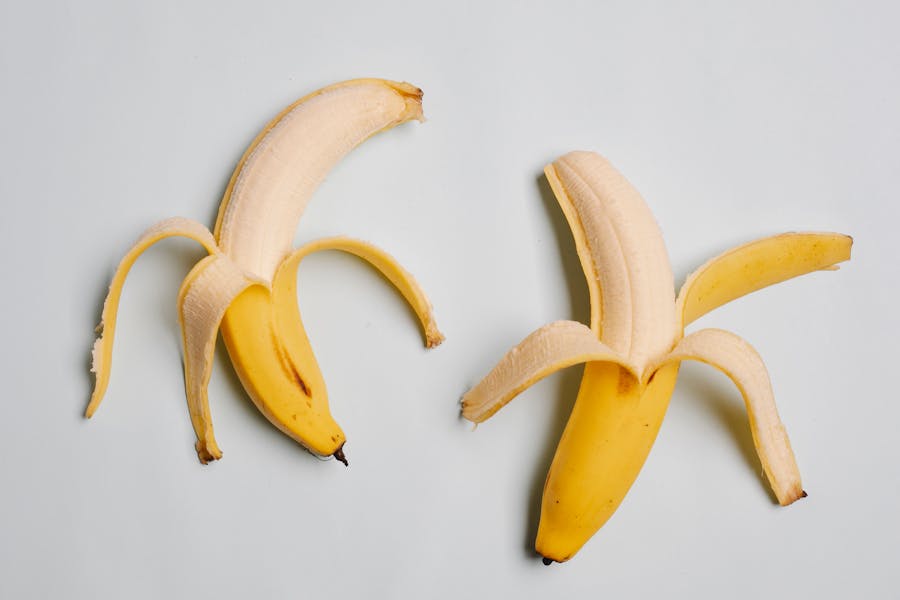Pregnancy is the time when women make every lifestyle decision at the core and keep in mind the health of the baby and themselves. Though bananas are regarded as very healthy fruit, there are some reasons a pregnant lady should avoid them. The article below describes the key reasons for avoiding bananas during pregnancy. It tells what risks are involved and gives tips for a safe diet at this time. Be you newly pregnant or planning your diet for pregnancy, understanding these aspects can ensure a much healthier journey for both you and your baby.
Why to Avoid Banana During Pregnancy?
Although bananas are healthy, they come with some risks when consumed during pregnancy. High levels of potassium have a direct impact on the kidneys, and some studies state this can lead to a high possibility of developing a history of gestational diabetes. Another problem with bananas is the increase in morning sickness due to sugar in the fruit. It’s important to consult a health provider in order to make your diet choice personal while pregnant.
Health Risks of Consuming Bananas During Pregnancy
Although bananas are a healthy food, there are some elements within them that may turn out to be potentially dangerous during pregnancy. Among the main factors of concern is their high potassium content, which tends to have an impact on the kidneys. The implication here will be that, for women who have previously had problems with their kidneys, this might further complicate that issue. The other aspect relates to how this fruit is also high on the glycemic index, thus able to raise blood sugar to high levels. This might prove quite risky for women who are at risk for gestational diabetes because, in such a condition, stable blood sugar levels have to be maintained.
Just another risk associated with bananas is that they can cause allergies. This, again, is a very rare case, but some pregnant women might actually become sensitive to certain foods to which they were previously not sensitive. Sometimes, hormonal fluctuations in pregnancy may trigger new allergies, and bananas happen to be one of them.
The amount of fiber contained in one banana might also be periodically indigestive, as the food is generally good. During pregnancy, digestion may easily get out of balance, and excess fiber will cause bloating, gas, and discomfort. It’s essential to balance the intake of fiber with other nutrients for healthy digestion.
More than this, the serotonin in bananas can affect mood and sleep patterns. While serotonin is a mood-stabilizing hormone, an excessive intake of it through bananas may cause mood swings or disturbed sleep, which is quite common during pregnancy anyway.
Bananas may interact with some medications. Pregnant women who require blood pressure or heart condition medications should be greatly cautious as the high amounts of potassium in a banana may interfere with such drugs. Always consult the doctor for any major changes in diet during pregnancy.
Nutritional Alternatives of Bananas During Pregnancy
Analyzing Safe Fruit Options
Fruits are a necessary part of pregnancy diets, but at the same time, the type of fruit one consumes is very important. Reach for fruits such as apples, berries, and pears, which provide mixes of both vitamins and fiber without excessive amounts of potassium like that found in bananas. These fruits thus help with the digestive process but provide an essential component of the mother’s and baby’s overall nutrition.
Vegetables for Balanced Nutrition
Veggies are another good option: leafy greens, carrots, bell peppers are all powerhouses of nutrition. These vegetables will promote good health in general and also help in eating well during pregnancy to ensure one gets the right kind of balance in their diet.
Association of Protein-Rich Foods
Protein is necessary for the baby’s growth. Plan to eat lean meats, beans, and nuts for a supply of this protein source. These foods will provide the protein without the added sugar from bananas, keeping the blood sugars low and feeding the growth properly.
Benefits of Whole Grains
Quinoa, oats, and brown rice are whole-grain foods packed with nutrients, providing energy. They work great for keeping blood sugar levels stable; they are especially important in pregnant women at risk of gestational diabetes.
Hydration and Its Importance
Stay well-hydrated during pregnancy. Water, herbal teas, and new fruit juices without sugar will help do so. Avoid any sugary drinks that will increase blood sugar and choose hydration that promotes overall good health.
Possible Side Effects of Bananas During Pregnancy
High Potassium Levels: A medium-sized banana comes with 422 milligrams of potassium that aids in proper muscle functioning and the functioning of the cardiovascular system. However, excess consumption can put pressure on the kidneys during pregnancy, especially for women who already have a problem in one of the kidneys. Excess intake can result in hyperkalemia, causing irregular heartbeats and muscle weakness.
Blood Sugar Spikes: Being high in the glycemic index, bananas shoot up blood sugar levels very quickly. This is worrisome for those women in pregnancy who are prone to the risk of gestational diabetes. Stable blood sugar levels are very important during pregnancy for avoiding neonatal complications like higher birth weight and preterm birth.
Allergic reactions: Hormonal changes in pregnancy may make a person develop new allergies. The allergic reaction to banana can be in the form of mild itching and hives to severe swelling and trouble breathing. If pregnant women show unusual symptoms after eating a banana, they should seek medical advice.
Digestive Issues: While the amount of fiber in a banana is excellent for digestion, excess quantities can cause bloating and gaseous feelings, which are more probable during pregnancy when the digestive rate slows down. It might, therefore, cause discomfort and disturb nutrient absorption.
Disturbances in Sleep and Mood: Bananas are rich in serotonin that regulates mood and sleep. Thus, excess intake of them may result in mood fluctuations orDisturbances in sleep. It might further complicate the hormonal changes going on in the body during pregnancy.
Medication Interactions: The amount of potassium present in a banana may react with medicines taken to reduce high blood pressure or heart conditions, thus diminishing their effect or increasing their side effects. Pregnant women who are on such medicines should consult their doctor about their diet.
Conclusion
While bananas are a fruit half the size of a healthy diet, there are specific reasons why one should avoid them during pregnancy. Too-high potassium content, potential spiking of blood sugar, and risk from allergic reactions are key concerns. Understanding these risks and knowing what food choices to make will ensure a much healthier pregnancy experience. Always consult your health provider to individualize your diet according to unique and specific health needs.
FAQ’s
Q. Are small amounts of bananas safe during pregnancy?
A. A small banana per day is fine, but ensure you couple it with sources of protein.
Q. How might bananas be a source of disturbance in maintaining blood sugar levels during pregnancy?
A. Bananas rank high on the glycemic index, elevating blood sugar very fast, contributing to the risk of developing gestational diabetes.
Q. What are some other alternatives to bananas during pregnancy?
A. Think of fruits like apples, berries, and pears—foods that are nutrient-dense without extreme potassium levels.









